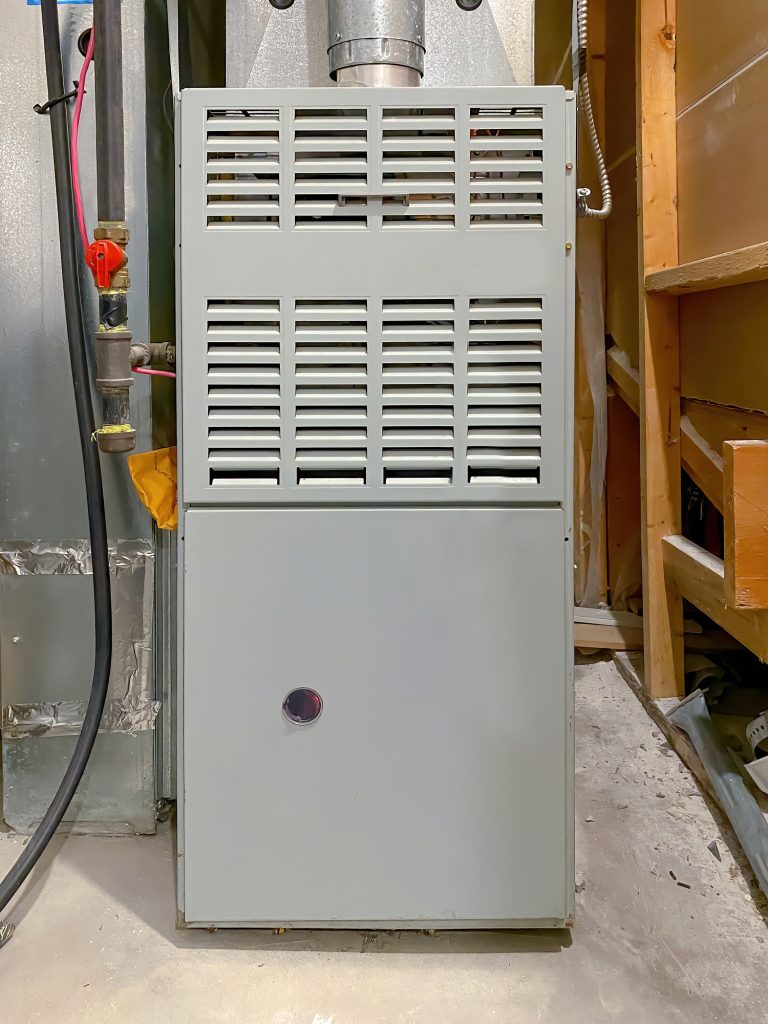When the cold season comes, many homeowners rush to ensure their home’s heating system is in perfect working condition. No one wants to be caught off-guard by the freezing weather.
Those with newer homes may also consider installing the best HVAC system before the cold winter hits. The big challenge comes when choosing between the two most popular whole-house heating options – boiler vs furnace.
While some people will prefer and recommend a boiler, others will choose a furnace for their household. Which system will guarantee the most comfortable winter, even when temperatures fall below zero? In terms of effectiveness, is there a huge difference between boiler and furnace systems?
This article will look at the two heating systems in more detail so you can make an informed decision for your home.
Boiler vs furnace heating systems: What’s the difference?
When it comes to heating systems in the US, boilers, and furnaces are among the most common options. Some people will even use the terms interchangeably, however, these two heating systems are quite different. While both are designed to warm your home during the winter, their working mechanisms differ.
What is a boiler?
There are several types of boilers; each work by heating water to heat the house. First, the boiler heats the water. Then, through a system of pipes, the heat is transferred as hot water or steam to radiators installed in different rooms within the house.
The radiators help transfer the heat from either the steam or hot water to the desired room. Radiators can be installed under the floor (radiant floor system), on the wall (baseboard radiators), or as cast-iron radiators.
Ultimately, the boiler provides the hot water or steam that warms your indoors. As for fuel, a boiler can be powered by gas, electricity, oil, or wood pellets.
What is a furnace?
Like a boiler, a furnace is designed to offer warmth to your indoor space. However, unlike a boiler, this type of heating system heats the air and distributes it to the rooms in the house that need heating.
A furnace has a blower that draws air from the outside and directs it to the burner. The burner, in turn, burns the fuel (gas, coal, or electricity) to produce the heat that heats the air. This hot air is then distributed throughout the house via ductwork and vents.
Furnaces are also called forced-air systems as they force the warm air into the house using a blower.
Differences between boiler and furnace heating systems
Besides functionality, several other features and factors differentiate a boiler vs a furnace. These include:
Purchase cost
When comparing boiler vs furnace heating systems, most homeowners consider the price. How much will it cost to purchase and install a furnace or boiler?
A new furnace can cost you anywhere between $3,000 to $7,000. The price will depend on the fuel type (electric or gas), model, and size.
As for a boiler, you will part with at least $3,500 or up to $8,500. This also depends on the type of boiler, fuel type, size, and even efficiency level.
Monthly operation cost
Another crucial thing to consider when installing a heating system is the cost of operation. As you may guess, a boiler vs furnace’s monthly cost of operation is different.
Usually, a furnace is more maintenance intensive, requiring more professional maintenance check-ups than a boiler would. For instance, a gas furnace can cost you around $500 monthly for maintenance, while an electric one can cost between $130 and $180. Repairing a furnace ranges between $130 and $490.
On the other hand, a boiler has fewer maintenance requirements apart from the annual tune-up service. On average, you can spend as low as $190 or as high as $630 to repair a boiler. When comparing boiler vs furnace monthly cost, boilers will be more cost-effective.
Efficiency
The efficiency of a heating system is the measure of heat the system produces against the amount of fuel used. Usually, boilers are more fuel-efficient, meaning they require a lot less fuel to generate the same amount of heat.
Most manufacturers use AFUE (Annual Fuel Utilization Efficiency) ratings when determining a boiler vs furnace efficiency. The higher the ratings, the more efficient the system is. For instance, a boiler or an electric furnace has an AFUE rating of 95% to 100%. However, a gas furnace can have an efficiency rating as low as 80%.
The highly-efficient systems have AFUE ratings of 90 to 98.5%. Typically, boilers outrank furnaces in terms of efficiency.
The main pros and cons of each system
For those still wondering, “what’s the difference between a boiler and a furnace?” we’ve included a quick breakdown of the pros and cons of each.
Boiler pros and cons
Here’s a list of the pros and cons of boilers.
Pros
- Longer lifespan
- Offers even and gradual heating
- Fewer maintenance costs
- More efficient
Cons
- Higher initial cost
- Can be noisier
- Complex installation process
- Must use radiant heating elements
Furnace pros and cons
Here’s a quick list of the pros and cons of furnace systems.
Pros
- Lower initial cost
- Easy installation
- No water leaks
- Better for households with less storage space
Cons
- Shorter lifespan
- Higher maintenance costs
- Less efficient
- Blows dust and allergens
Boiler vs Furnace: Which system is better?
The answer here depends on a home’s needs and the region’s climate. As seen above, boilers are more efficient, have fewer maintenance requirements, and heat evenly. On the other hand, a furnace is less costly to purchase and install, but it can be less efficient and more expensive to maintain.
A boiler is an ideal option if you need a system that heats your home efficiently throughout the winter. However, a furnace may work better if you are looking at purchase cost, installation cost, and convenience.
According to our list, a boiler seems to offer more benefits, however, the best system will be the one that suits your needs the best. Consider consulting a technician for a professional opinion.
Not sure which system to choose? Ask a pro.
Evaluating all the pros and cons and the key differences in features will help you to determine the difference between a boiler and a furnace and which one you should choose for your home. Before making that final decision, always consult a qualified technician. They are better suited to assess your home and find you the best system fit. Schedule an appointment with one of our professionals, and we’ll be sure to help you find the best system for your needs.





